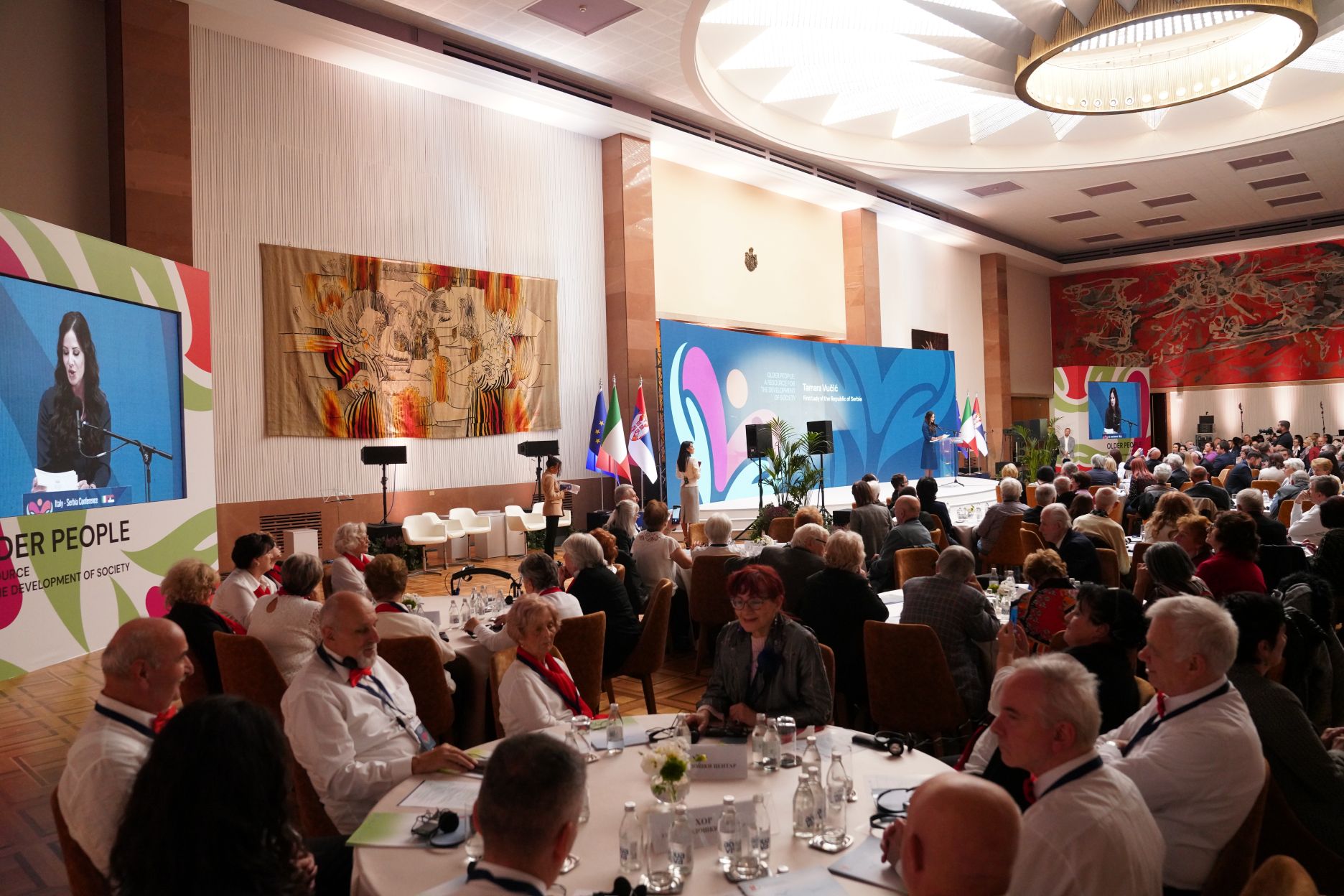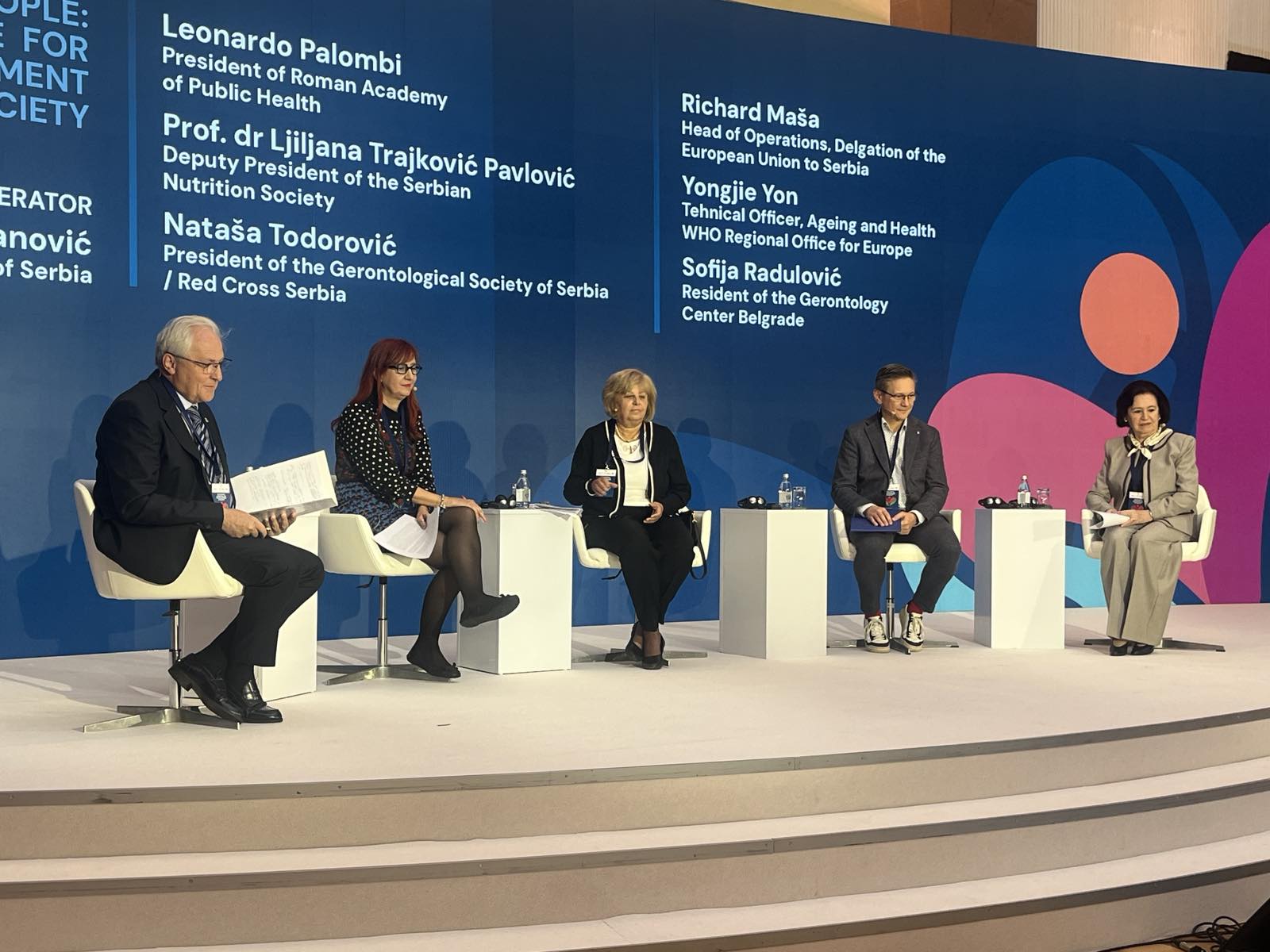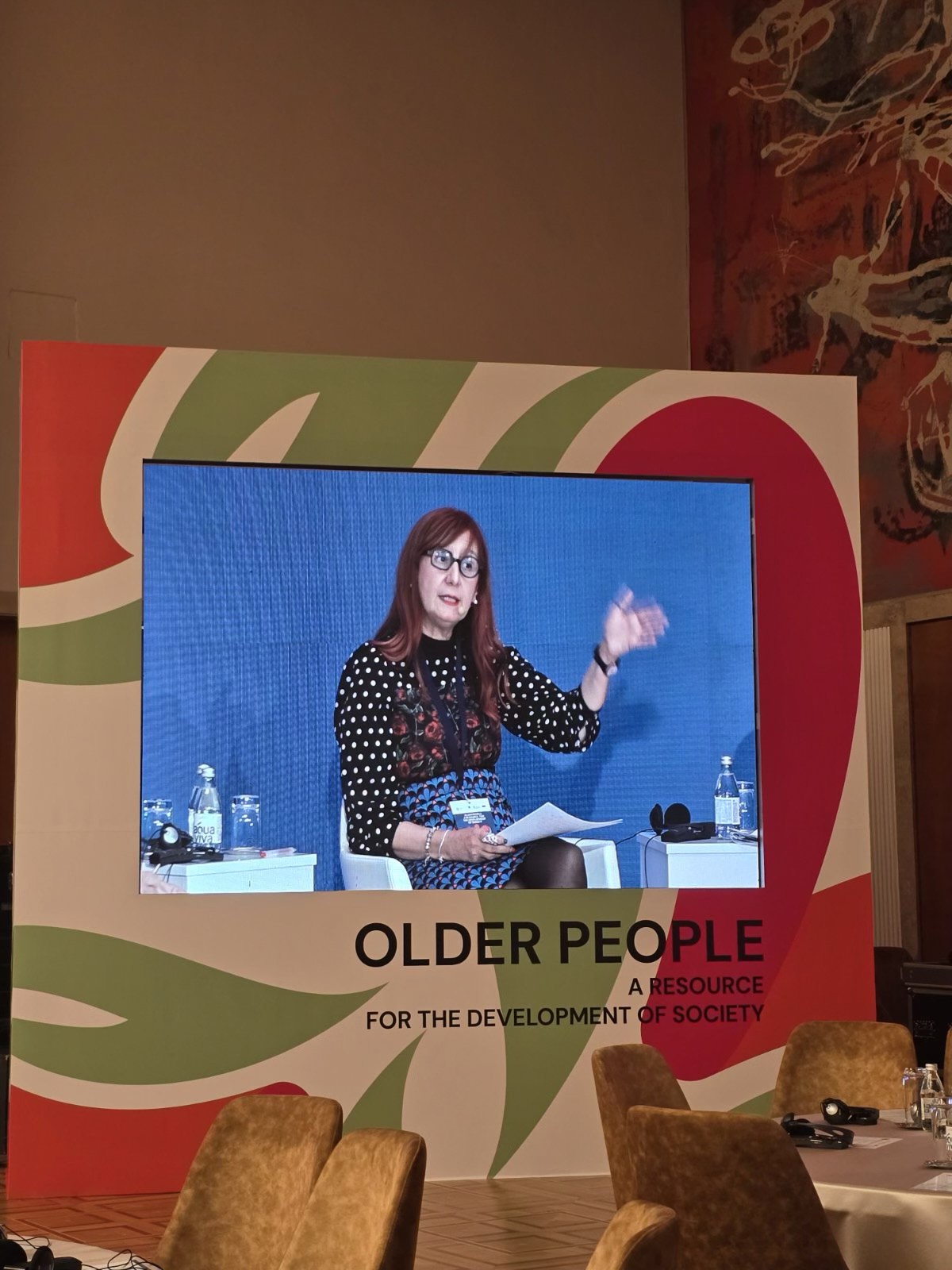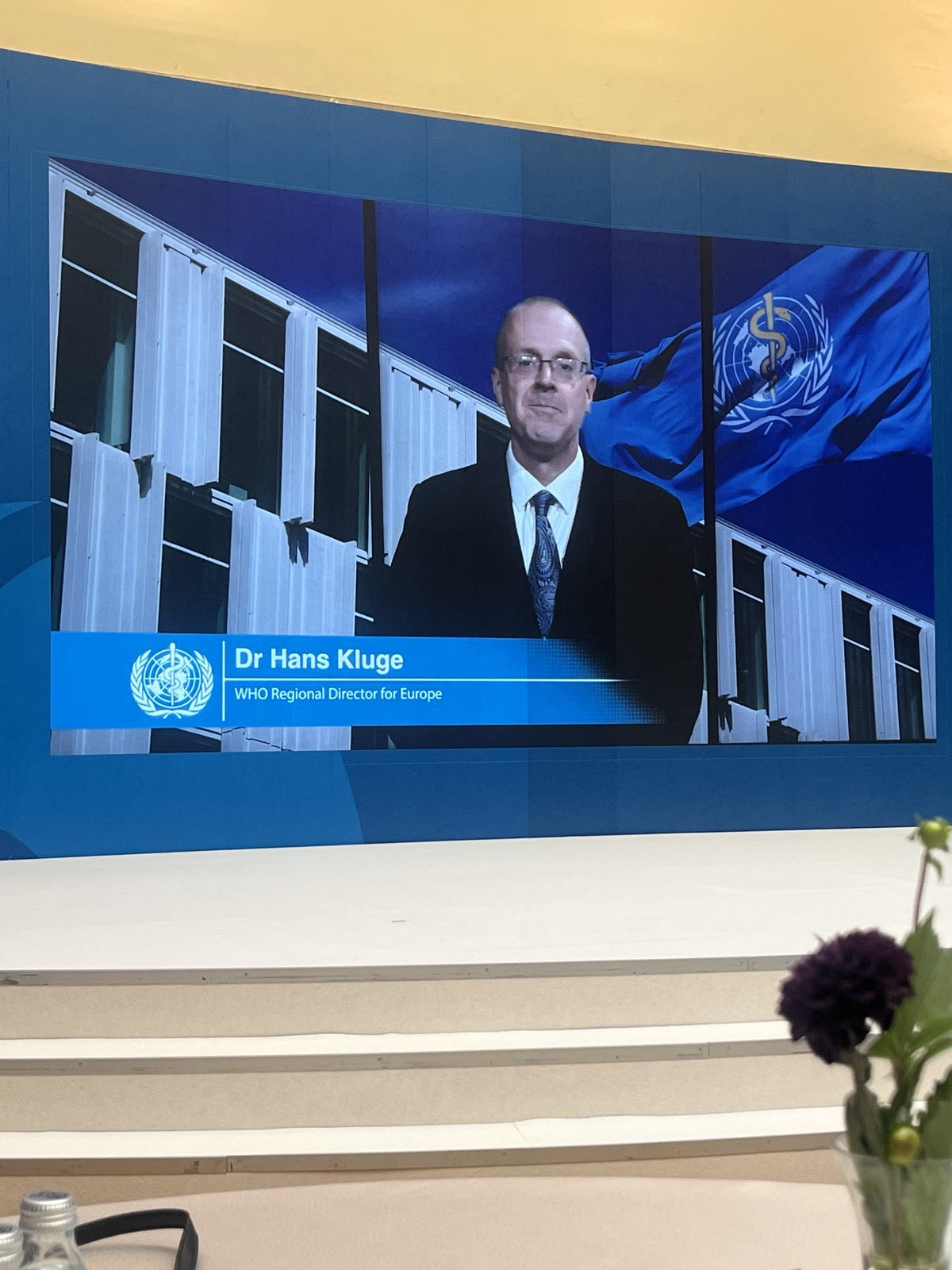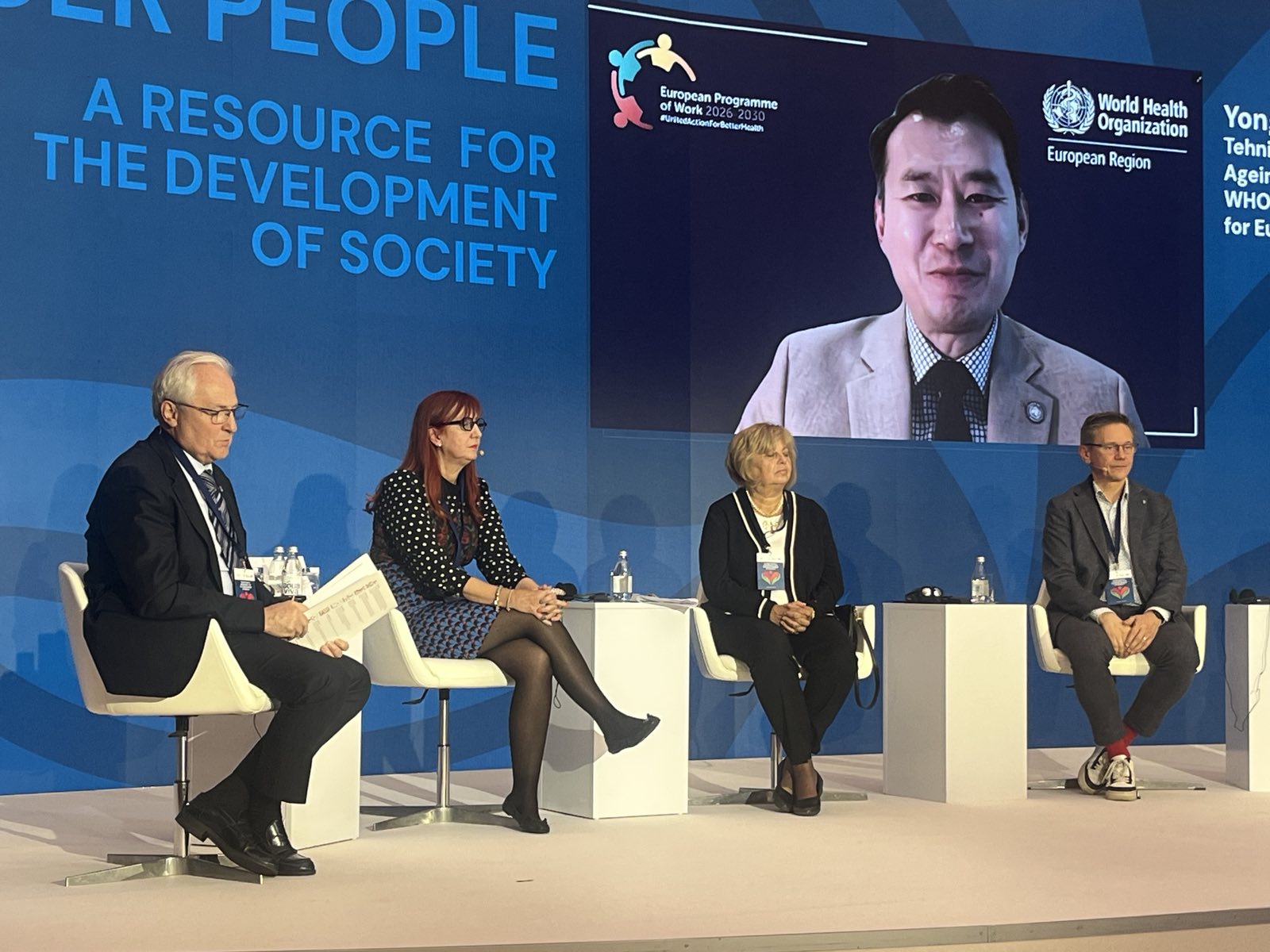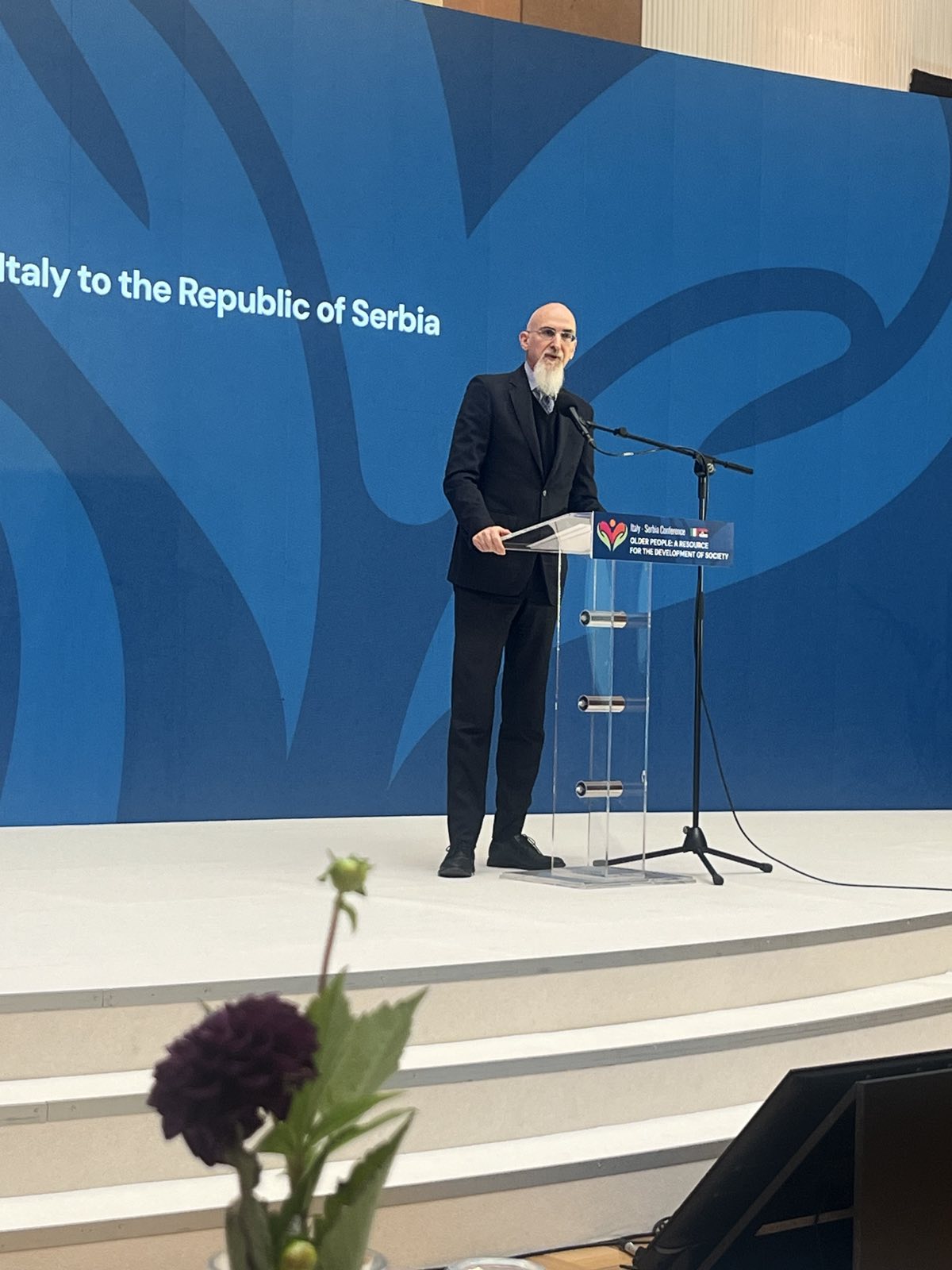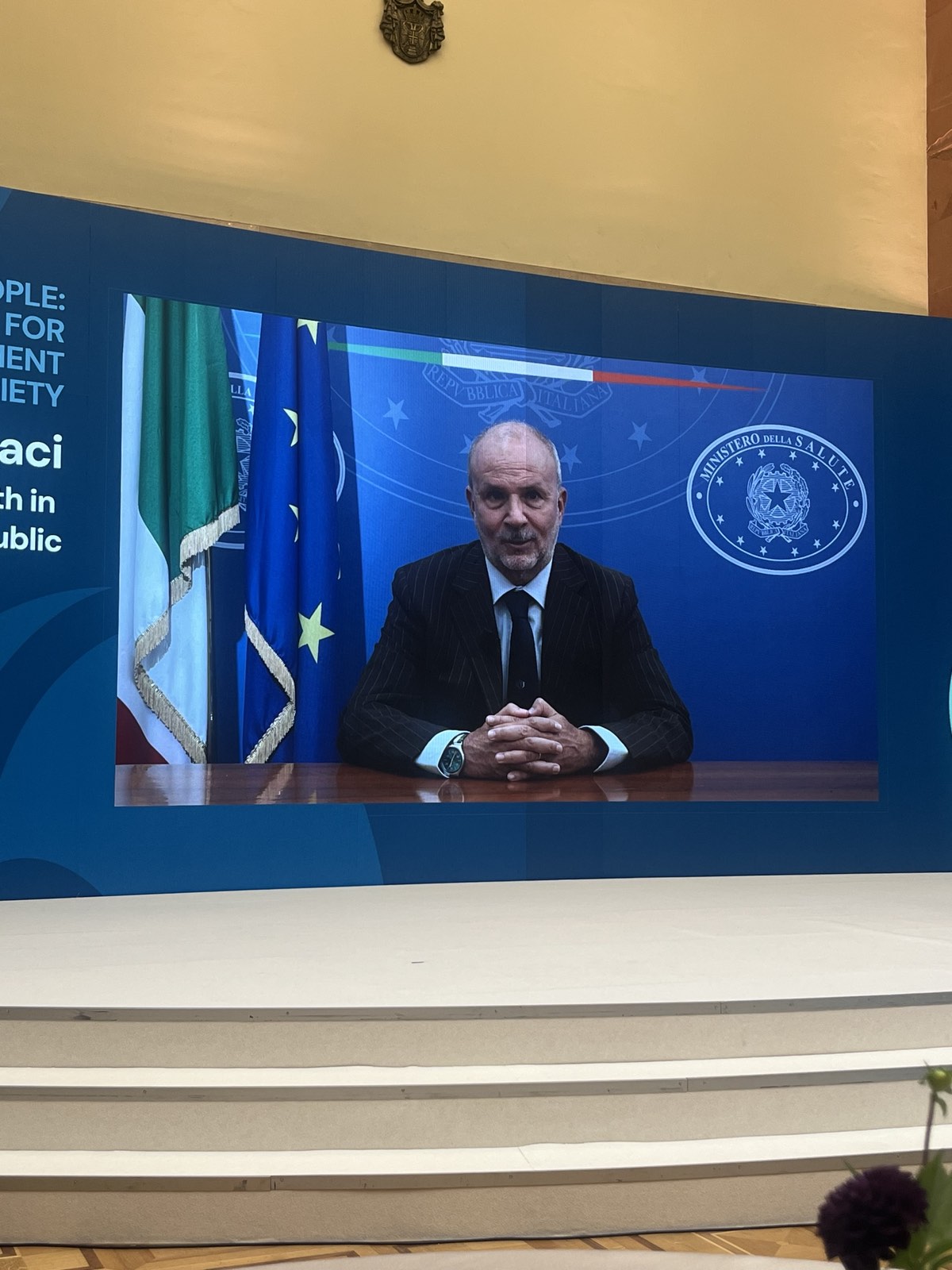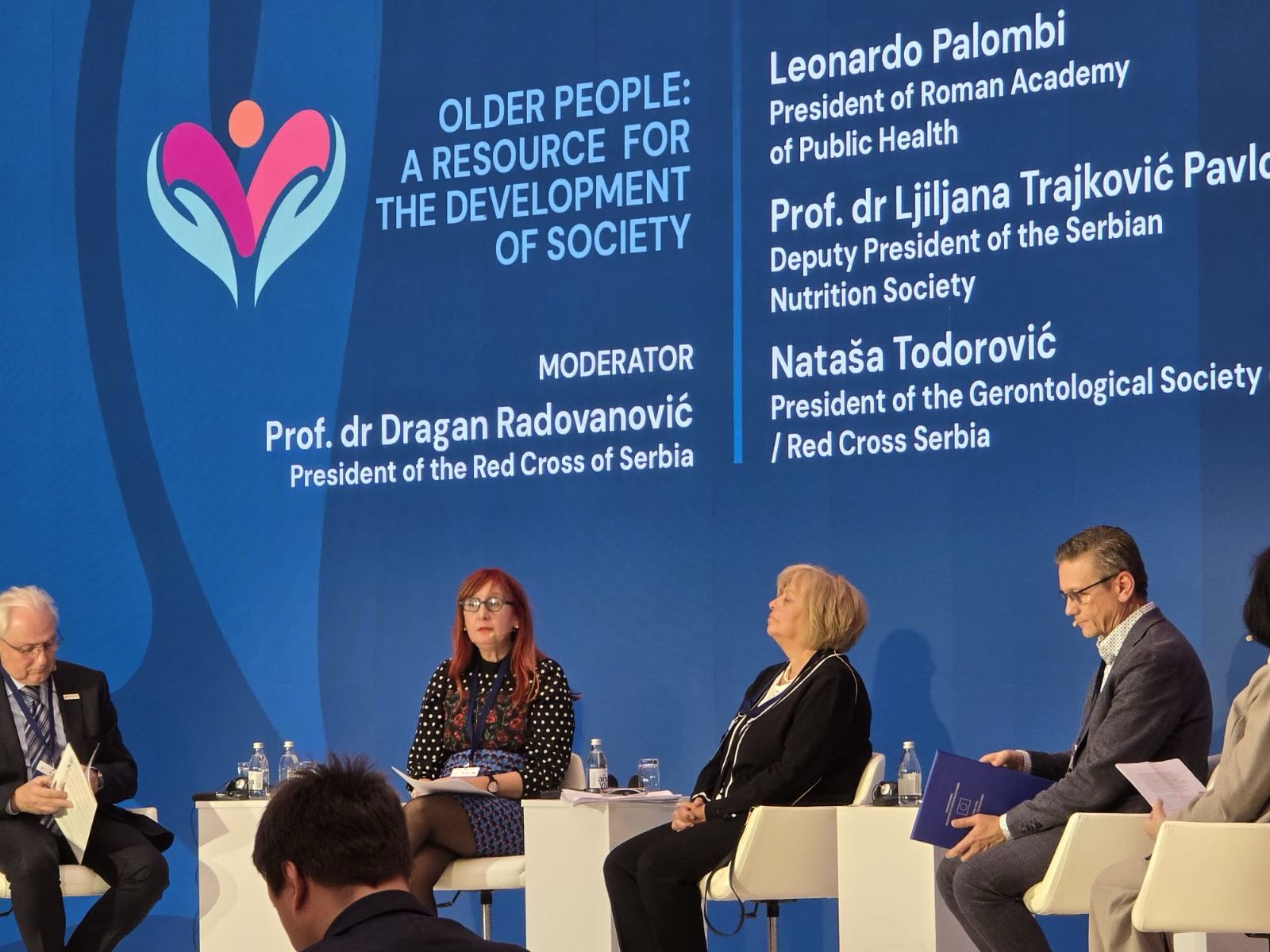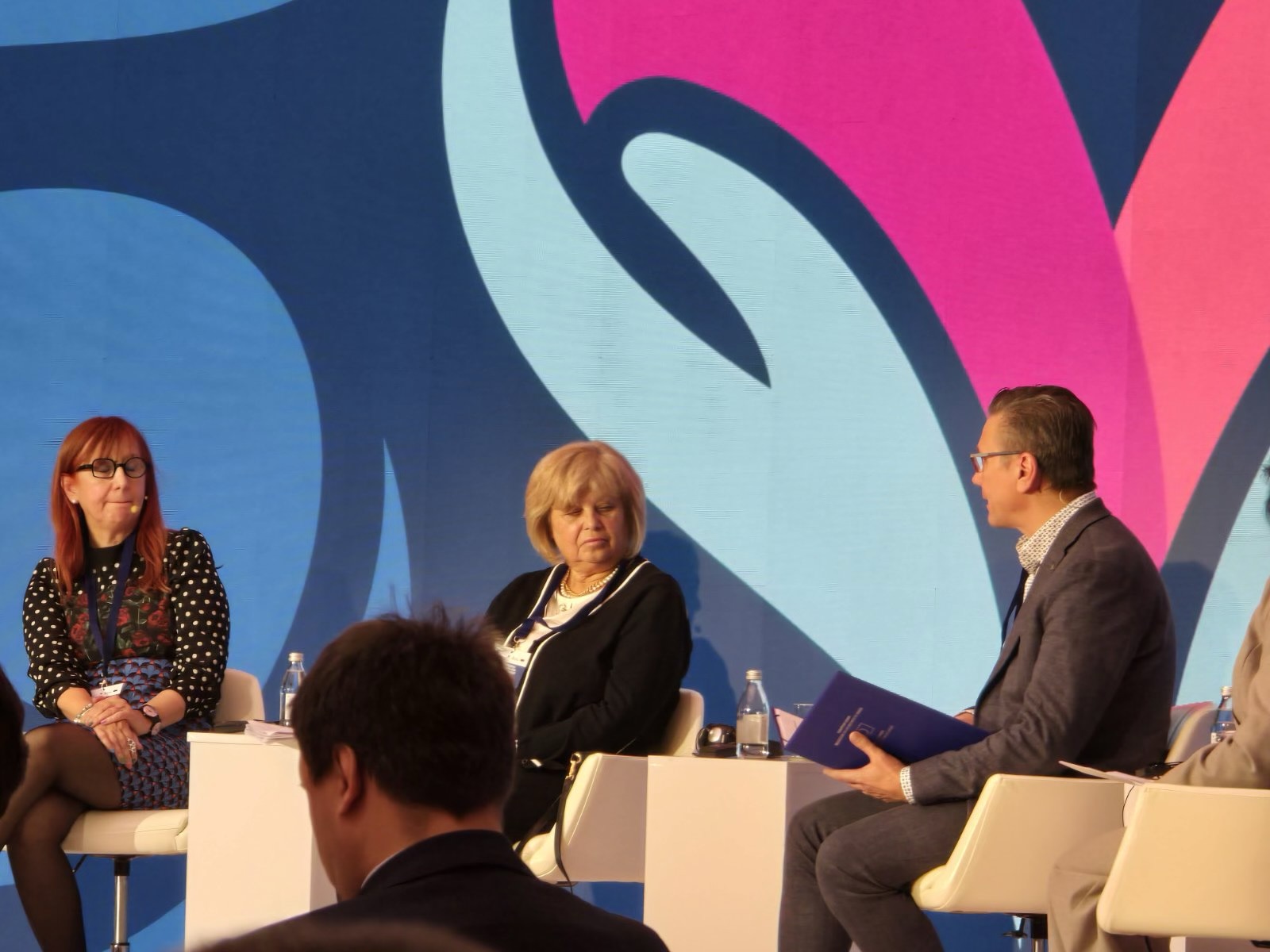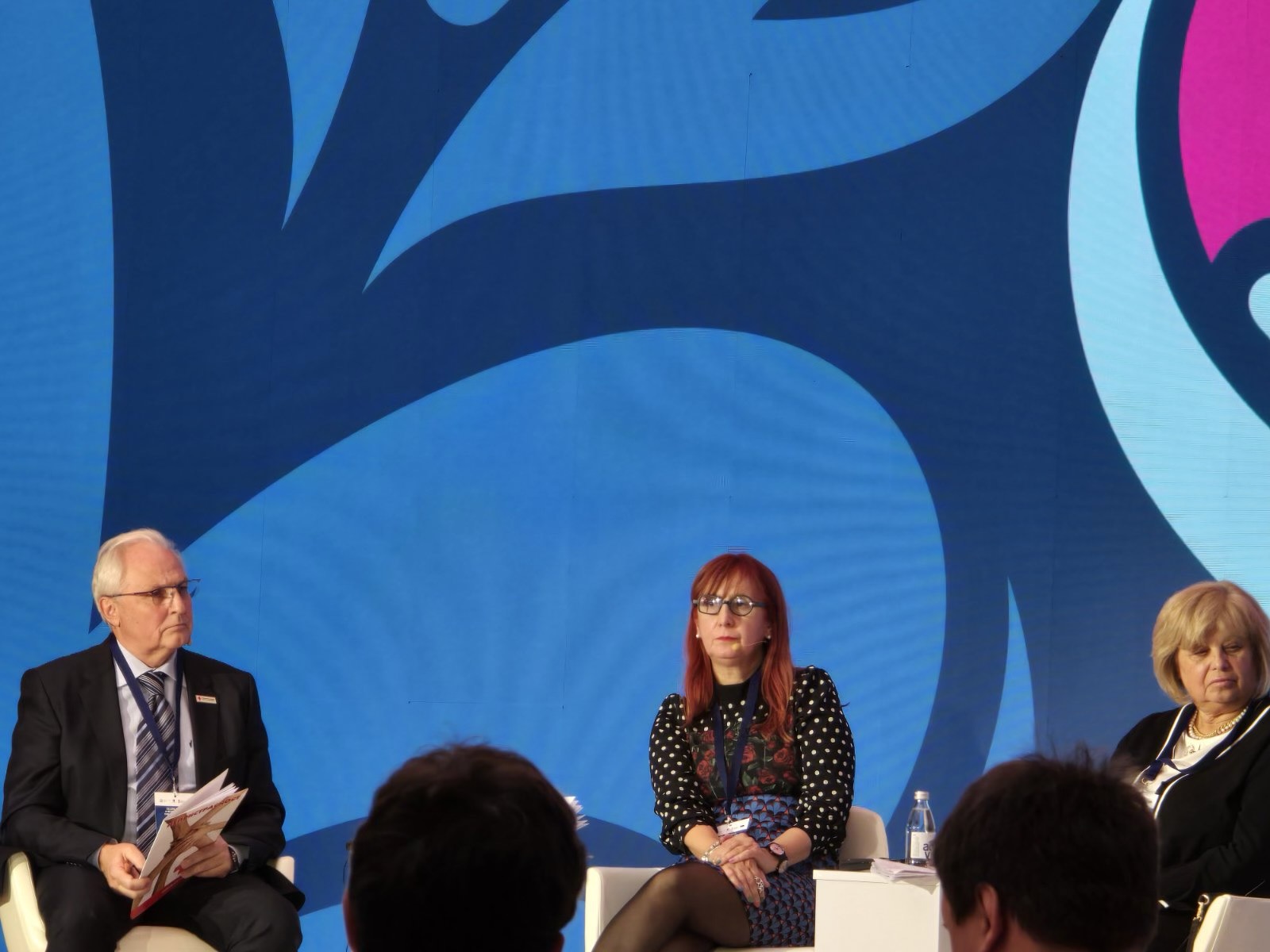International Conference “Older People – A Resource for Societal Development” Held in Belgrade
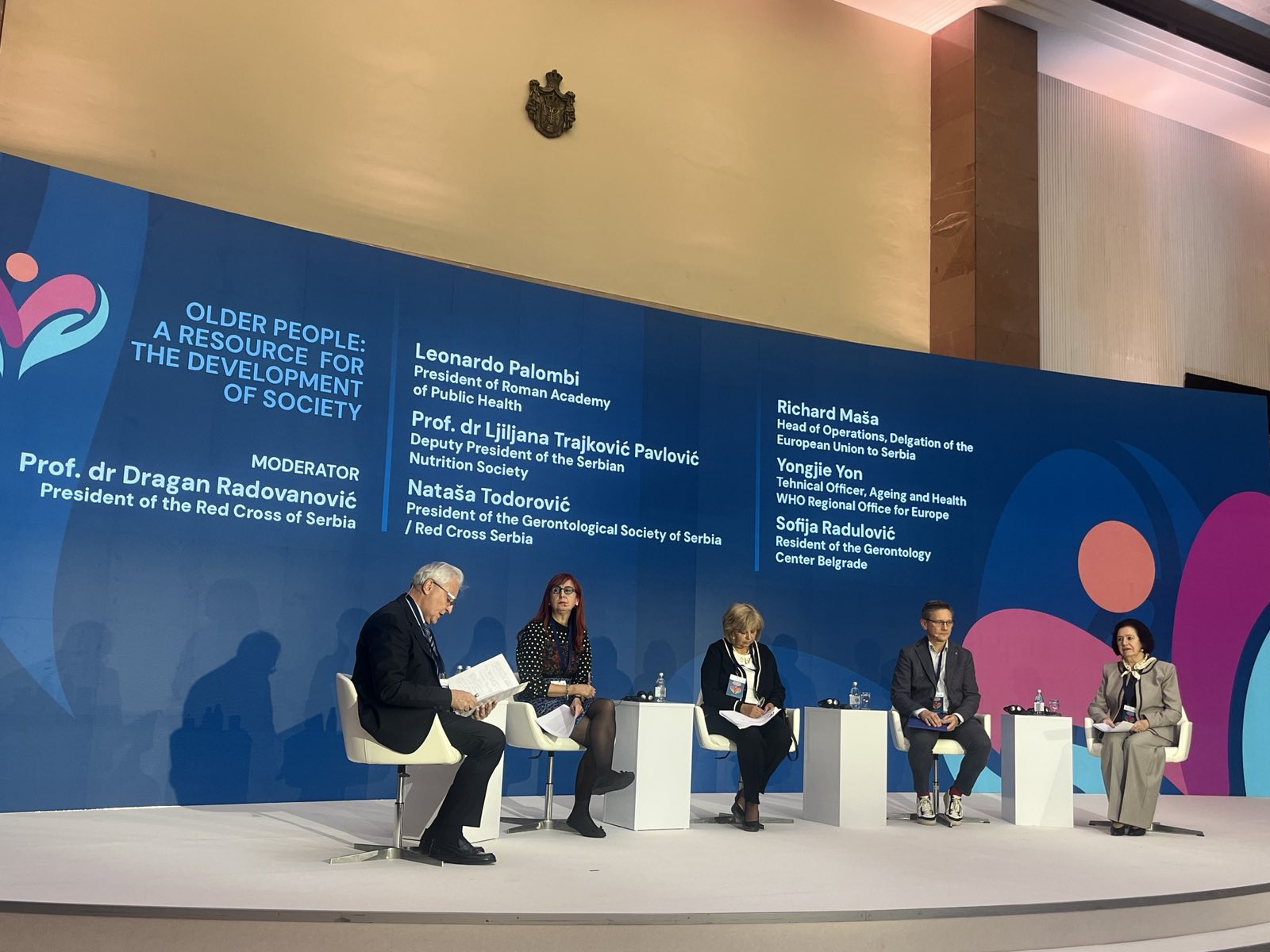
On Monday, October 6, 2025, the International Conference on Older Persons “Older People – A Resource for Societal Development” was held at the Palace of Serbia in Belgrade, with the support of the Embassy of Italy, in cooperation with the Roman Academy of Public Health and the Ministry of Labour, Employment, Veteran and Social Affairs of the Republic of Serbia. The conference was held under the patronage of the First Lady of the Republic of Serbia, Tamara Vučić.
The aim of the event was to strengthen the social role of older persons and to recognize their contribution to families, communities, and society, as well as to exchange experiences and good practices in improving policies aimed at the older population.
The conference was opened by Milica Đurđević Stamenkovski, Minister of Labour, Employment, Veteran and Social Affairs, who emphasized that the system of social and health care should be developed towards greater solidarity, accessibility, and intergenerational support.
Speakers at the event included Orazio Schillaci, Minister of Health of Italy, Luca Gori, Ambassador of Italy to Serbia, Hans Henri P. Kluge, WHO Regional Director for Europe, and Monsignor Vincenzo Paglia, President of the Commission for the Reform of Health and Social Care for Older Persons at the Italian Ministry of Health.
A special role in the conference was played by the Red Cross of Serbia, which was a partner in organizing the expert panel and round table on the position of older persons and their role in society. The round table was moderated by Dragan Radovanović, President of the Red Cross of Serbia, who highlighted the importance of intersectoral cooperation and the continuous development of programs that promote active ageing, intergenerational solidarity, and the dignity of older persons.
At the expert panel, Nataša Todorović, expert associate of the Red Cross of Serbia, spoke about the situation of older persons and stressed that this is the most heterogeneous population group, characterized by diverse needs, abilities, and life circumstances. She emphasized that this diversity must be the starting point for creating services, programs, and policies that contribute to improving the quality of life and greater inclusion of older persons in the community. Todorović also underlined the importance of recognizing the everyday contributions of older persons within families, communities, and society, noting that without their active role there can be no sustainable development or genuine intergenerational solidarity.
Panel participants included Professor Dr. Leonardo Palombi, President of the Rome Academy of Public Health; Professor Dr. Ljiljana Trajković Pavlović, Deputy President of the Serbian Nutrition Society; Richard Maša, Head of the Operations Section at the Delegation of the European Union to Serbia; Yongjie Yon, Technical Officer for Ageing and Health at the WHO Regional Office for Europe; and Sofija Radulović, resident of the Gerontological Center Belgrade.
At the end of the conference, Dragan Radovanović, President of the Red Cross of Serbia, presented the conference conclusions, stressing that older people are an invaluable resource for society, whose knowledge, experience, and contributions should be systematically recognized and appreciated. He emphasized that the Red Cross of Serbia, through its long-standing programs and cooperation with international partners, continues to work on improving the quality of life of older persons, reducing discrimination, and promoting active and healthy ageing.
During the conference, the Italian Law on Older Persons (Law 33/2023) and the Italian Charter on the Rights of Older Persons and the Duties of the Community were presented, reaffirming the joint commitment of Italy and Serbia to developing policies that promote active, healthy, and dignified ageing, while strengthening intergenerational solidarity and social cohesion.
